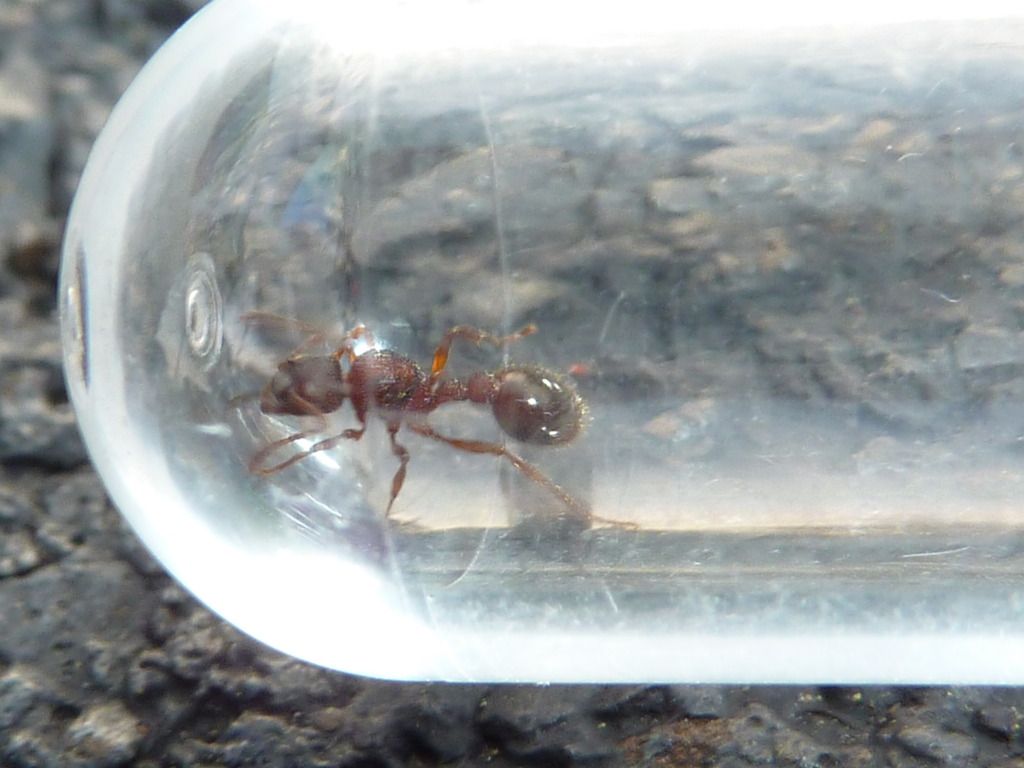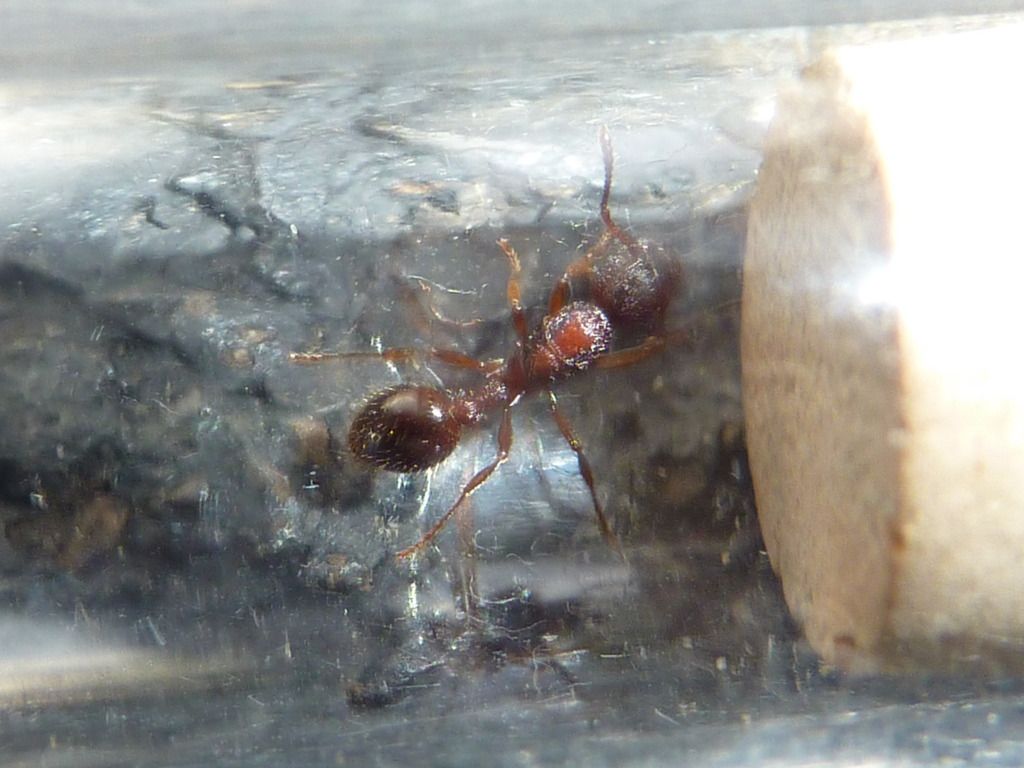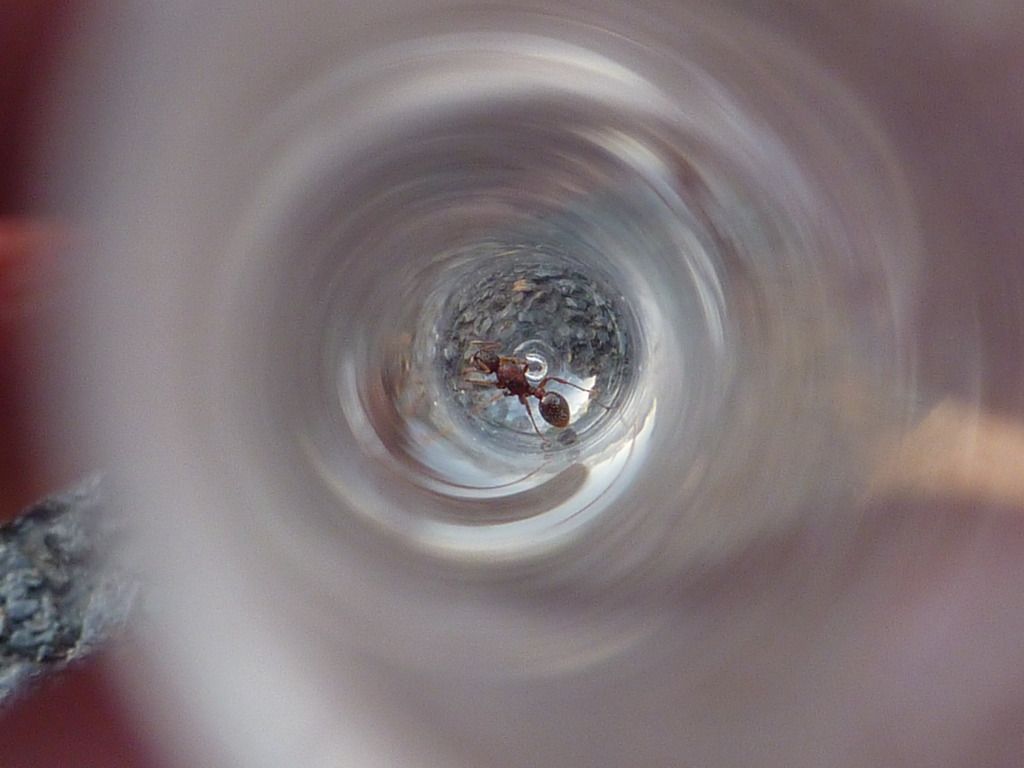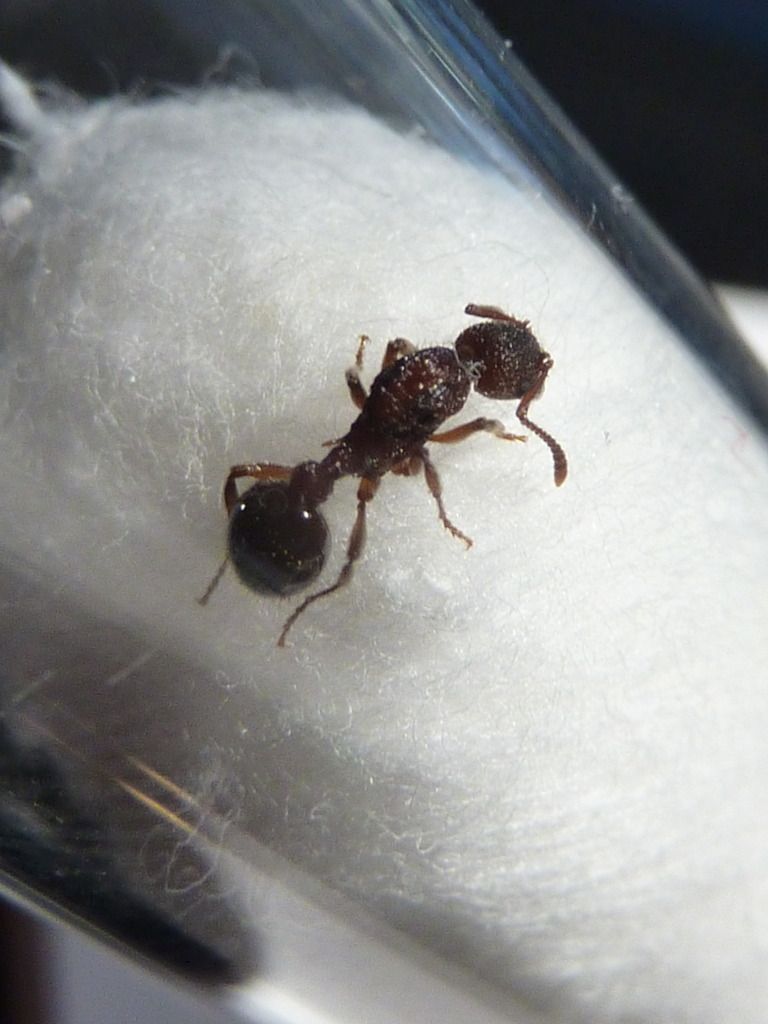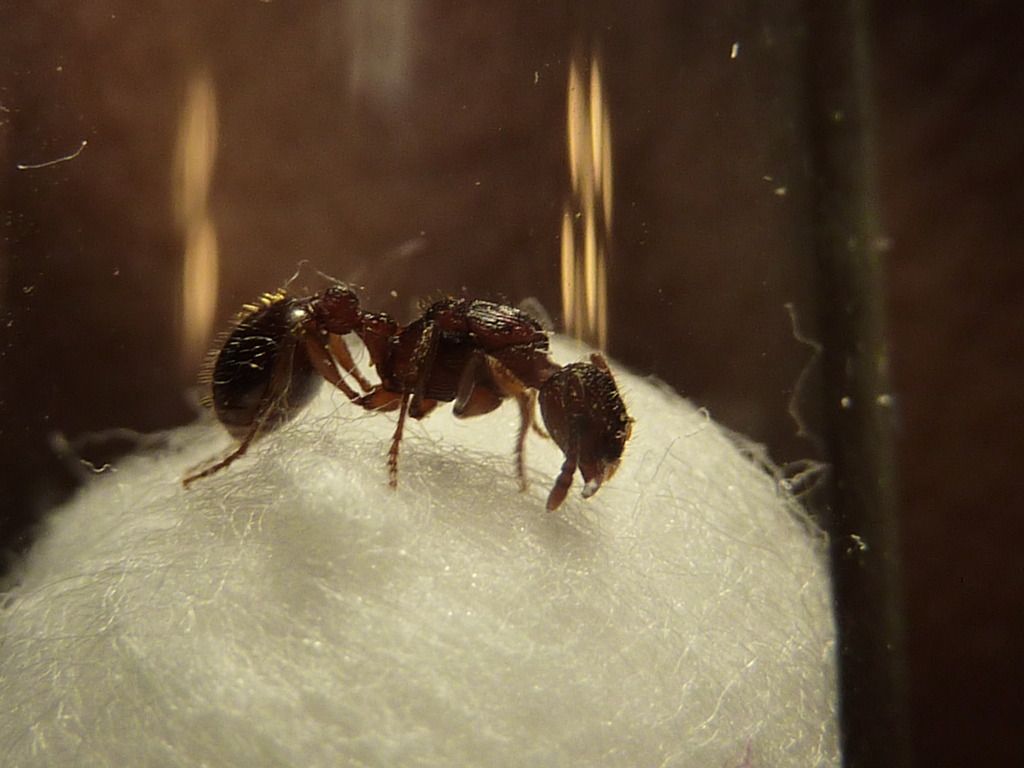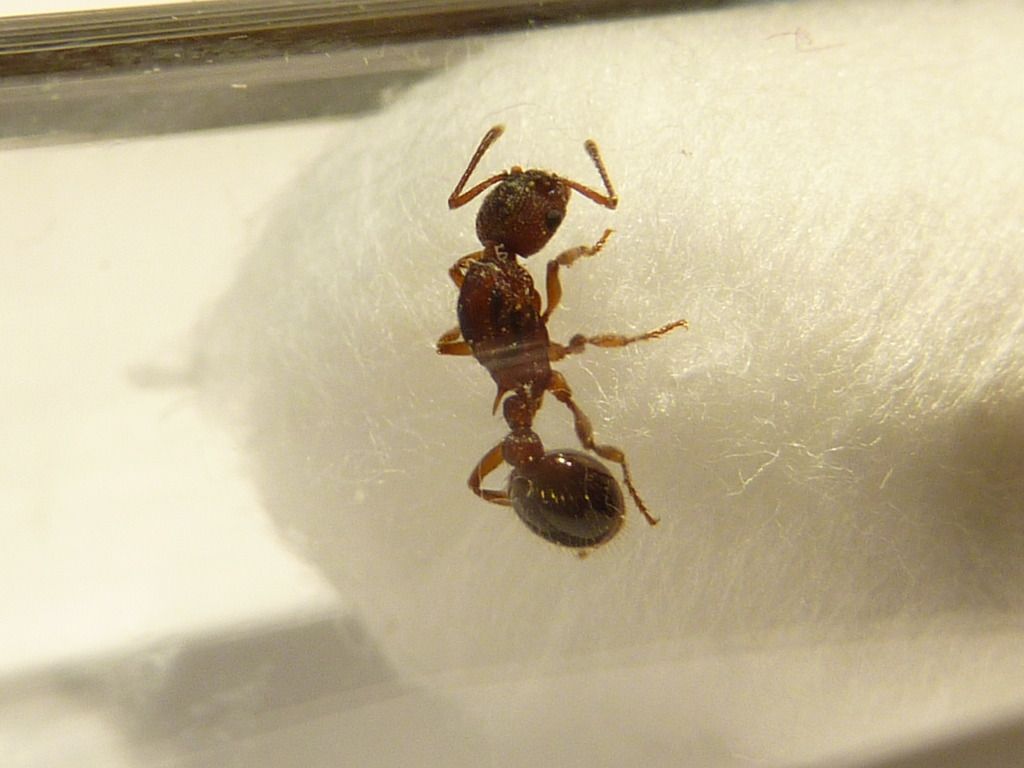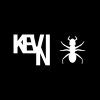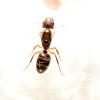1. Location of collection: South Hampton, PA.
2. Date of collection: 4/29/17
3. Habitat of collection: Suburban/forested area
4. Length (from head to gaster):~6-7 mm
5. Color, hue, pattern and texture: Dark red, noticeably orange legs.
6. Distinguishing characteristics: Postpetiole present
7. Distinguishing behavior: NA
8. Nest description: NA
It looks like either an Aphaenogaster, Myrmica, or Stenamma queen for sure. Very surprised to have caught one so early.
